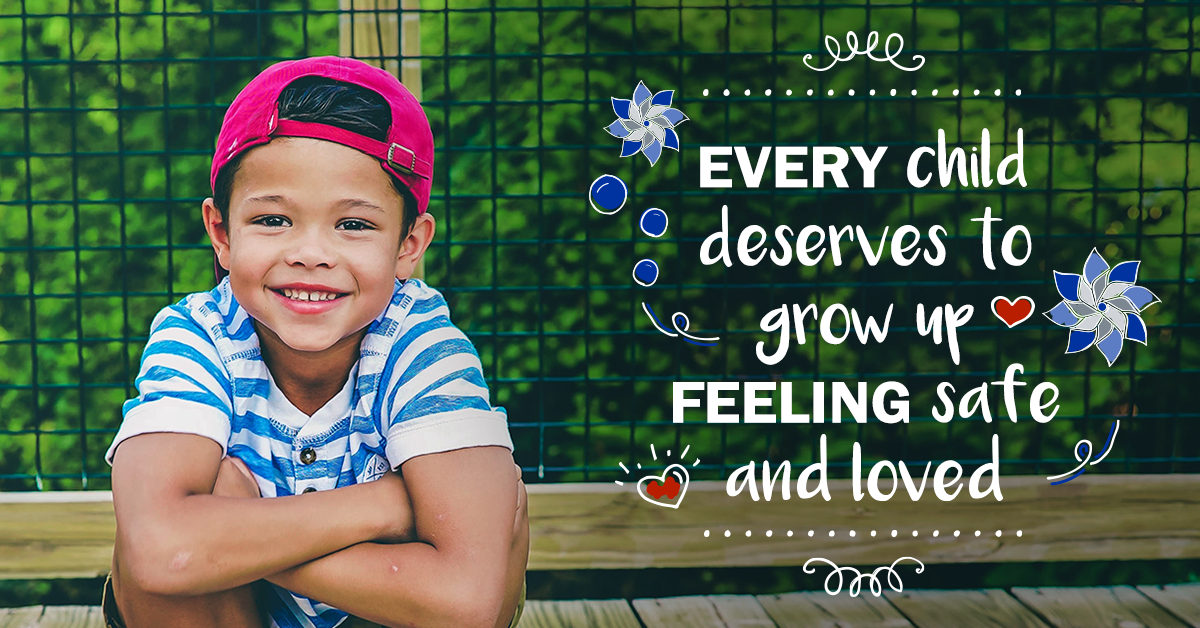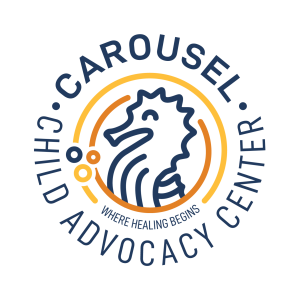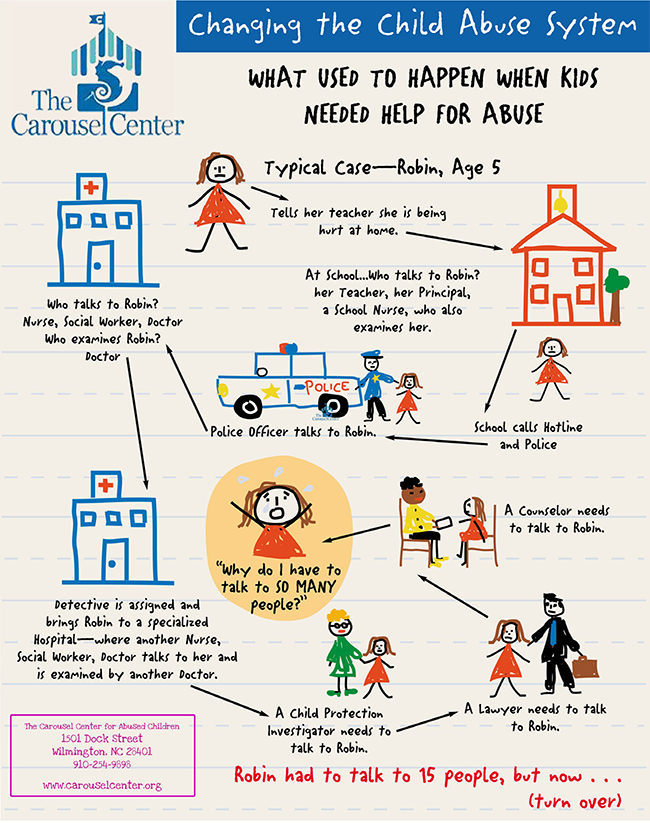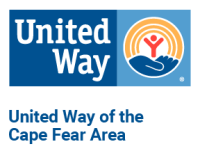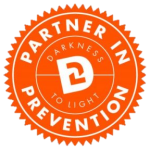What We Do at the Carousel Child Advocacy Center
Where the Services Revolve Around the Needs of the Child
Carousel Child Advocacy Center’s vision is to build resiliency in children to strengthen the community.
Our Mission is to support healing, promote justice, and foster resilience in children
victimized by physical or sexual abuse, and improve our community through education, prevention, and advocacy.
ADVOCATE FOR CHILDREN
For more than twenty five years, Carousel Child Advocacy Center (CCAC) has served child abuse survivors of Brunswick, New Hanover, and Pender Counties. The only nationally accredited child advocacy center in the region, CCAC address immediate medical needs, preserve forensic evidence (to hold child predators accountable), and, most importantly, provide child survivors and their families quality therapy services to heal from the traumatic impact of abuse. Furthermore, we invest in prevention education training for community members to stop abuse before it occurs. These trainings – open to all – are critical tools for adults to learn how to advocate for children and how to identify, report, and respond to child abuse appropriately.
WHAT WE DO AT THE CAROUSEL CENTER
You can be an advocate for abuse prevention, mandated reporting, human trafficking, and trauma-informed responses.
You can join us to create communities that are safer, healthier, and more supportive of children and families who need protection and support. Learn More about our Tri-County Sexual Abuse Prevention Initiative.
Our team provides a wide range of professional training and other educational opportunities for interested groups on child sexual abuse recognition and prevention, mandated reporting, and the Carousel Center’s program services. If you work for a school, daycare, after-school program, church, or any organization serving children, let us help you train your staff and volunteers. We welcome the opportunity to provide information in a brief talk for civic organizations. Learn more about how you can be a Partner in Prevention.
Topics are varied and may include the following:
- Overview and Tour of the Child Advocacy Center: 45-60 minutes, no cost
Tour our facility in Supply, NC, or Wilmington, NC, and learn more about the Carousel Center Child Advocacy Center services. - Child Advocacy Center 101 – this talk can be modified based on available time. Overview of Carousel Center, the child advocacy center model, and our array of services. This informative presentation is ideal for civic groups, Rotary, Kiwanis, United Way meetings, etc.
- Community Resilience Model CRM® – The (CRM)® trains community members to help themselves and others within their wider social network. The primary focus of this skills-based stabilization program is to reset the natural balance of the nervous system. CRM’s goal is to help create “trauma-informed” and “resiliency-focused” communities that share a common understanding of the impact of trauma and chronic stress on the nervous system and how resiliency can be restored or increased using this skills-based approach
- Darkness to Light’s Stewards of Children® (SOC) 2 hours depending on Q&A. This nationally recognized, evidence-informed training has proven to increase knowledge of child sexual abuse and change child-protective behaviors using five simple steps. Continuing education contact hours are available for social workers, childcare providers, and nurses. Continuing Legal Education (CLE) contact hours may also be offered for Training dates and curriculum information.
- Partners in Prevention – Together, we can end child sexual abuse in our communities! Become a distinguished Partner in Prevention.
- Resilience: Film Screening and Discussion: 1.5 hours, no cost. Adversity in childhood has lifelong effects on health and behavior. Resilience: the Biology of Stress & the Science of Hope chronicles the use of brain science to disrupt cycles of violence, addiction, and disease.
For more information or to discuss other potential training opportunities, contact Rebecca Martin, Education and Prevention Coordinator at the Carousel Center Child Advocacy Center, or call 910-254-9898.
Carousel Child Advocacy Center is the region’s only nationally accredited child advocacy center. Carousel serves child survivors when there are concerns of sexual abuse, physical abuse, neglect, or who have witnessed a violent crime. All services are provided in a nurturing, friendly, and safe environment at no cost to a child’s family.
Only local departments of social services or law enforcement may refer a child to a child advocacy center. Anyone may refer a child survivor of trauma to the Carousel Center for therapy services. We provide therapy services for children who have experienced sexual/physical abuse and/or neglect, so they can concentrate on doing the hard work of healing and get back to the business of childhood. Call our 910-254-9898 to schedule an appointment. Unfortunately, our therapists often have waiting lists, so you may be referred to a community child therapist who also specializes in trauma therapy.
In North Carolina, all school faculty and staff are “Mandated Reporters” for suspected, observed, or disclosed incidents of child physical/sexual abuse and/or neglect. This means they are required by law to report incidents to either your county’s Department of Social Services and/or 9-1-1 or law enforcement.
Need To Report Child Abuse? Click Here.
You may also call the National Child Abuse Hotline at 1-800-4-A-CHILD or online to chat https://www.childhelp.org/childhelp-hotline/.
Additional resources:
The Suicide Lifeline 1-800-273-8255
Crisis Text Line – Text HOME to 741741
Trillium Screening Triage and Referral – 1-877-685-2415
Your Visit to Carousel Child Advocacy Center
Carousel Child Advocacy Center is a safe, child-friendly location for children to speak with trained interviewers or one of our medical providers. We know this can be an anxious time for you and your family. When we are able, one of our family advocates will call you before the medical evaluation/interview to answer any of your questions. But you don’t have to wait. If you have questions and need answers, please call and ask to talk to the advocate assigned to your child’s case. We would rather you call than worry.
At Carousel we work closely with a team of professionals from law enforcement and the Department of Health and Human Services. When you come to Carousel, you will be able to meet the professionals working on your child’s case and ask them further questions.
While you’re talking to the team, one of our advocates will be showing your child(ren) around Carousel. They will get to see the room where they will be talking, where they can play, and check out the cool artwork. If they have questions or worries, they can ask their advocate anything.
Will I be able to watch my child’s interview?
No. Only professionals directly involved in the investigation are allowed to observe the interview. This is done to reduce the possible stress that can be placed on a child and to provide a neutral setting for the child and the investigation.
Many of us working at Carousel are parents just like you. We understand how being in the same room with our child may influence what the child says or doesn’t say. If our child doesn’t answer quickly enough, a parent may answer for them. It’s hard for us as moms and dads to sit quietly or not influence the interview with a concerned look or an emotional reaction.
All of the interviews at the Child Advocacy Center are recorded to minimize the number of times your child will have to talk about what happened. The recording of the interview is turned over to law enforcement as part of the evidence in a potential criminal case. North Carolina law specifies how, when, and to whom CME Reports and/or Child Advocacy Center records (because they are confidential and/or privileged) may be released.
DSS Records:
N.C.G.S. 7B-302(a1)(3) – CME and/or FI received by DSS for an investigation of child abuse, neglect or dependency are strictly confidential and cannot be released except in certain circumstances (i.e. with a court order).
N.C.G.S. 7B-505.1(d) – CME cannot be shared, except pursuant to N.C.G.S. 7B-700
N.C.G.S. 7B-700 and N.C.G.S. 7B-3100 – allow us to share information with community partners named in the administrative order (signed by the Chief District Court Judge) for the protection of the child.
Privileged Information (CME and FIs):
N.C.G.S. 8-53 – physician/patient privilege; court order required
N.C.G.S. 8-53.7 – social worker privilege; court order required
N.C.G.S. 8-53.8 – LPC/counselor privilege; court order required
Law Enforcement Records (CME and/or FI):
N.C.G.S. 132-1.4(l) – Records of investigations of alleged child abuse shall be governed by Article 29 of Chapter 7B of the General Statutes.
N.C.G.S. 7B-2901 – Court order required
What should I tell my child about coming to the Child Advocacy Center?
You might tell your child: “We are going to the Carousel Center. It is a special place where kids go to talk about important stuff. The person you will be talking to talks to lots of kids about what might have happened to them. It’s okay to tell them everything. You are not in any trouble.”
Who will my child talk to?
On their first visit, your child will be talking to one of our trained interviewers and a medical provider. These professionals have attended basic and advanced training on how to talk to children about difficult subjects. It’s important that any details about the alleged abuse come from the child. Our interviewers are trained to not ask suggestive questions and to move at a pace that is comfortable for your child. They never force a child to talk to them.
What will I be doing while my child is talking to someone?
You will be meeting with your family advocate. They will answer any questions you have. If they don’t know the answer, it is their job to find out. They will listen to your worries and concerns and provide resources to help you through a difficult time. Our advocates are not therapists, but they can listen and get you the help you need.
Your other children are welcome to play in our lobby area so you can talk privately to your advocate. Our staff assistant or one of our interns will keep an eye on them. Before they find our snacks in our kitchen, be sure to let us know if your child(ren) has any food allergies or diet restrictions.
What happens after the interview?
You will be able to talk to members of the investigation team. They will tell you in general terms what they learned from the interview. You will have an opportunity to ask questions and voice your concerns.
Remember, your child’s interview is just the first step in the process. There may be other witnesses that need to be interviewed. There may be physical evidence that needs to be photographed or collected. The alleged offender will be interviewed. So, at this point in the process, it’s often difficult to predict what will happen. All of the information will be turned over to the county attorney who will decide whether or not to prosecute. Your family advocate will keep in regular contact to let you know what is happening in the case. If you have questions at any point during the investigation or prosecution of your child’s case, please feel free to contact your advocate.
Parents and children are often worried about whether they will have to testify in court. It’s really way too early to know. If this happens, our advocate will be with you every step of the way and will even provide a special Court School to help your child feel more comfortable.
Child Medical Evaluation (CME) and Forensic Interview
Professionals with specialized training and education perform a child medical evaluation and forensic interview when there are potential concerns for abuse, neglect, or exposure to violence (child maltreatment?). The evaluation includes a detailed history from a non-offending caregiver, a forensic interview, and a medical exam in a nurturing and supportive child-friendly environment.
A Forensic Interview is a structured conversation with a child using an evidence-based protocol, RADAR. The purpose of the interview is to obtain a detailed history of the child’s experience to aid in medical diagnosis and assess the overall health, well-being, and safety of the child. (Further info link to RADAR or another page on site).
The Child Medical Exam takes place at the Carousel Center in a child-friendly examination room. Each child receives a thorough head-to-toe exam similar to a well-child exam. Our medical staff is rostered through the University of North Carolina Chapel Hill School of Medicine Child Medical Evaluation program.
Following the child’s evaluation, our multidisciplinary team will formulate recommendations regarding the overall health and safety of the child which will be shared with the non-offending caregiver.
Will my child need counseling?
Some children do and some don’t. Every child is unique in how they cope. Some may not need counseling now but will need counseling down the road. Maybe you need counseling more than your child to help you cope with everything that has happened. Your advocate will listen and provide referral information. What we do know is that children who are believed and protected from continued abuse are able to do quite well.
It is very important to your child’s recovery that you work with a therapist specifically trained and experienced in trauma and abuse. This is a field with special expertise.
In most instances, it is important to provide your child with an opportunity to talk with a professional. Too often parents just want their child to “forget” about the abuse and “move on.” That’s easier said than done. Counseling can help your child and family through this very difficult time. It’s best to address issues and concerns now, rather than years later.
We have professional therapists available at Carousel, or we can provide you with referrals to therapists in the community. Please call 910-254-9898 to request Therapy. Please know that if our therapist’s schedules are full, you may be referred to a community provider that provides Trauma Therapy.
Professionals with specialized training and education perform a child medical evaluation when there are potential concerns for abuse, neglect, or exposure to violence. The evaluation includes a detailed history from a non-offending caregiver, a forensic interview, and a medical exam in a nurturing and supportive child-friendly environment.
A Forensic Interview is a structured conversation with a child using an evidence-based protocol, RADAR ((Recognizing Abuse Disclosures And Responding). The purpose of the interview is to obtain a detailed history of the child’s experience to aid in medical diagnosis and assess the overall health, well-being, and safety of the child.
The Child Medical Exam takes place at the Carousel Center in a child-friendly examination room. Each child receives a thorough head-to-toe exam similar to a well-child exam. Our medical staff is rostered through the University of North Carolina Chapel Hill School of Medicine Child Medical Evaluation Program (CME).
Following the child’s evaluation, our multidisciplinary team will formulate recommendations regarding the overall health and safety of the child which will be shared with the non-offending caregiver.
Where Healing Begins…
Without effective therapeutic intervention, child victims of abuse may suffer ongoing or long-term consequences that will impact them throughout their lifetimes. Therapy services, individual and group, are provided for children who have experienced sexual/physical abuse and/or neglect or witnessed a traumatic event, and their caregivers. Anyone may refer a child survivor of trauma to the Carousel Center for therapy.
Carousel’s team of therapists is experienced in working with children and has specialized training in several proven treatment models:
- Trauma-Informed Cognitive Behavioral Therapy (TF-CBT) Our clinicians are certified through the North Carolina Child Treatment Program (NCCTP). This is an evidence-based approach to treating trauma in children (ages 3-17) such as sexual, or physical abuse, domestic violence exposure, neglect, and more.
- Parent-Child Interaction Therapy (PCIT) – is a short, evidence-based treatment for young children (ages 2-6) who are experiencing challenging, disruptive, or difficult behavior and for parents/caregivers in need of parenting assistance.
- Child-Parent Psychotherapy (CPP) therapy for young children 0-5 and their parents/caregivers who have experienced trauma. Supports family relationships, and helps families heal and grow after stressful experiences.
- Child and Family Traumatic Stress Intervention (CFTSI) is a short-term evidence-based early intervention for children who’ve been exposed to trauma to prevent the onset of Post-Traumatic Stress Disorder.
- Problem Sexual Behaviors Cognitive Behavioural Therapy (PSB-CBT) is an evidence-based assessment and treatment program for school-aged children (ages 7-12) struggling with problematic sexualized behaviors, and their families. Offered in both a group format and individual family therapy based on the needs of the family. PSB-CBT strives to decrease problem sexualized behaviors and ensure ongoing success for the child and family.
- Parenting After Trauma provides a 12-week support group for child victims, ages 7-16, and their non-offending caregivers in a safe, supportive environment where they can discuss issues related to abuse of their child/ren and strategies for parenting after trauma. A free group education is provided in tandem with Coastal Horizons Center. This is not a therapy group, but rather a support program that provides information on topics such as the impact of trauma on child and parent; ways to increase physical and emotional safety for children; coping skills for caregivers and children; behavior and communication strategies that can make a difference; ways to help the family not only heal but to grow stronger; plus resources that are available in the community.
Accepted Insurances:
- Medicaid
- Blue Cross Blue Shield
- Crime Victims Compensation
- Uninsured/Out of Network
NATIONALLY ACCREDITED CHILD ADVOCACY CENTER
As the only nationally-accredited child advocacy center in our service region, Carousel Child Advocacy Center serves children from birth through age 18. All services are provided in a nurturing, friendly, and safe environment at no cost to a child’s family. Carousel serves an nearly 500 children annually when there are concerns of sexual abuse, physical abuse, neglect, or who have witnessed a violent crime.
The Carousel Center is accredited by The National Children’s Alliance (NCA) and the Child Advocacy Center of North Carolina (CAC-NC).
NCA Accreditation Standards – To ensure that all children across the U.S. served by Children’s Advocacy Centers (CACs) receive consistent, evidence-based interventions that help them heal from abuse, hundreds of CACs have become Accredited Members of NCA by meeting our Standards for Accredited Members and verifying their adherence to the highest standards of practice by submitting to NCA site review.
Children’s Advocacy Centers of North Carolina is an accredited state chapter of the National Children’s Alliance, the national umbrella organization for children’s advocacy centers dealing with child abuse.
The children’s advocacy movement began in the 1980s. Each center is an independent agency, provides services for abused children, and relies on their local communities for support. By bringing together collaborative partners, such as local child protective services, law enforcement, prosecutors, and medical and mental health providers, Child Advocacy Centers can make a positive difference in the lives of abused children by bringing professionals to the child instead of asking children and their families to access services through many different portals.
